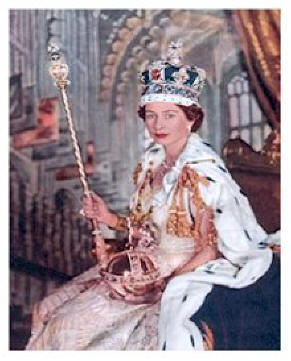Lecture MUSIC APPRECIATION: An Introduction 
Who doesn't appreciate music?? We all have our "tunes." We can't live without them. For most of us, the box that contains the music we like is pretty small. Here are some boxes. These are only a few of those available in our Western culture. Maybe you already appreciate some of these. But there are many others . . . Grunge, Soft rock, Electronic, Techno, Nashville country, Vaudeville, Psychedelic rock, Serialism, Dixieland, Blues-rock, Soul, Boogie woogie, Industrial, Bebop, Outlaw Country, Disco, Barbershop, Heavy metal, Funk, Trance, Latin, Aleatoric, Hillbilly, Zydeco, Emo, Spirituals, Reggae, Celtic, Western swing, Salsa, Bluegrass, New age, Honky tonk, Punk, Skiffle, Jazz fusion, Newgrass, Ragtime, Teen pop, Polka, Gothic . . . And these are just the tip of the ICEBERG!! There are many other genres in Western music and sub-genres. But what about the rest of the WORLD????  And when you consider what music has been made throughout all of time, the iceberg grows! |  | | | |
What kind of music is that? We cannot love that which we do not know. - Guinean proverb 
        

In order to appreciate music, you have to understand some things about it: who makes it why it is made when it is made where it is made how it is made |

Because of the culture in which you live (Planet Earth), you have some information about this picture. Consider the apparel she is wearing. what it is made of when it was worn why it was worn who made it how it was made do you wear it? No Do you want to wear it? maybe But consider this: 
An alien lands from Mars and is not familiar with your culture "TAKE ME TO YOUR LEADER!" Think of some of the questions the alien might ask about your culture . . . Is the man in the red suit your leader? The Martian can only appreciate the meaning of the red suit after he understands the culture that produced it. In just the same way, others do not appreciate the music you prefer because they do not have enough understanding. You do not appreciate other kinds of music because you do not have sufficient information in order to appreciate it. Your textbook says that "music is often best discussed according to how and why it is experienced rather than how it is constructed or when it was written." (p. xv) |
The appreciation of music . . .

THE SITUATION
In Washington , DC , at a Metro Station, on a cold January morning in 2007, this man with a violin played six Bach pieces for about 45 minutes. During that time, approximately 2,000 people went through the station, most of them on their way to work. After about 3 minutes, a middle-aged man noticed that there was a musician playing. He slowed his pace and stopped for a few seconds, and then he hurried on to meet his schedule.
About 4 minutes later:
The violinist received his first dollar. A woman threw money in the hat and, without stopping, continued to walk.
At 6 minutes:
A young man leaned against the wall to listen to him, then looked at his watch and started to walk again.
At 10 minutes:
A 3-year old boy stopped, but his mother tugged him along hurriedly. The kid stopped to look at the violinist again, but the mother pushed hard and the child continued to walk, turning his head the whole time. This action was repeated by several other children, but every parent - without exception - forced their children to move on quickly.
At 45 minutes:
The musician played continuously. Only 6 people stopped and listened for a short while. About 20 gave money but continued to walk at their normal pace. The man collected a total of $32.
After 1 hour:
He finished playing and silence took over. No one noticed and no one applauded. There was no recognition at all.
No one knew this, but the violinist was Joshua Bell , one of the greatest musicians in the world. He played one of the most intricate pieces ever written, with a violin worth $3.5 million dollars. Two days before, Joshua Bell sold-out a theater in Boston where the seats averaged $100 each to sit and listen to him play the same music.
This is a true story. Joshua Bell, playing incognito in the D.C. Metro Station, was organized by the Washington Post as part of a social experiment about perception, taste and people's priorities .
This experiment raised several questions:
* In a common-place environment, at an inappropriate hour, do we perceive beauty?
* If so, do we stop to appreciate it?
* Do we recognize talent in an unexpected context?
One possible conclusion reached from this experiment could be this:
If we do not have a moment to stop and listen to one of the best musicians in the world, playing some of the finest music ever written, with one of the most beautiful instruments ever made . . .
How many other things are we missing as we rush through life?
Can we learn to appreciate music that we find in unexpected places? |
|